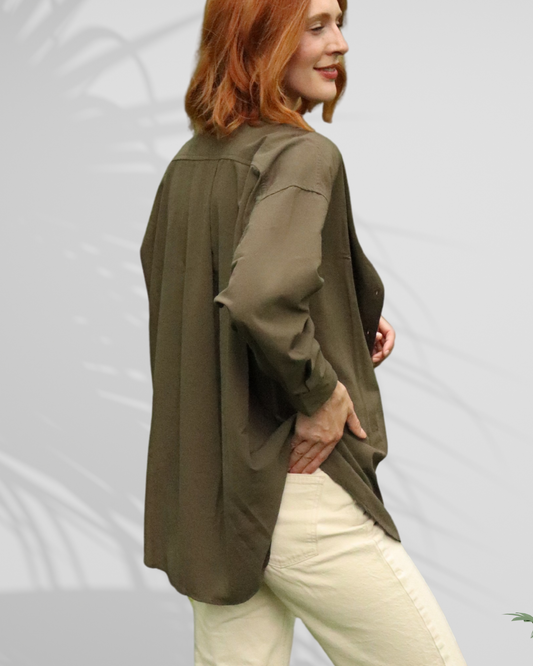Sun protection clothing has become increasingly popular in recent years, and for good reason. As awareness of the dangers of excessive sun exposure grows, so does the demand for effective ways to protect our skin.
While sunscreen is a common method of sun protection, sun protection clothing offers an additional layer of defense against harmful UV rays. In this article, we'll delve into the science behind sun protection clothing, explaining why it works and why it matters for your skin's health.
Why Sun Protection Clothing Works:
-
UPF (Ultraviolet Protection Factor): Sun protection clothing is specially designed with fabrics that offer UPF ratings, which measure the garment's ability to block UV radiation. Similar to SPF (Sun Protection Factor) in sunscreen, UPF indicates how much of the sun's UV rays can penetrate the fabric. The higher the UPF rating, the greater the protection provided by the clothing.
-
Fabric Construction: Sun protection clothing is typically made from tightly woven fabrics that create a physical barrier against UV rays. Additionally, certain fabrics are treated with UV-absorbing chemicals during the manufacturing process to enhance their sun protection properties.
-
Coverage: Unlike sunscreen, which can wear off or be easily removed through sweating or water activities, sun protection clothing provides consistent coverage for the areas it covers. This means that even areas that are often missed or inadequately protected with sunscreen, such as the shoulders, back, and chest, can be shielded from UV damage with sun protection clothing.
-
Durability: Sun protection clothing maintains its protective properties over time, even after repeated washings. This durability ensures that you can rely on the clothing to provide consistent sun protection every time you wear it, without worrying about reapplication like with sunscreen.
Why Sun Protection Clothing Matters:
-
Skin Cancer Prevention: Exposure to UV radiation is a major risk factor for skin cancer, including melanoma, the deadliest form of skin cancer. By wearing sun protection clothing, you can significantly reduce your risk of developing skin cancer by minimizing UV exposure to your skin.
-
Premature Aging Prevention: UV radiation accelerates the aging process of the skin, leading to wrinkles, fine lines, and sagging skin. Sun protection clothing helps prevent premature aging by shielding your skin from the damaging effects of UV rays, keeping your skin looking youthful and healthy.
-
Protection for Sensitive Skin: Individuals with sensitive skin or certain skin conditions, such as rosacea or eczema, may find sunscreen irritating or aggravating to their skin. Sun protection clothing offers a gentle and effective alternative for protecting sensitive skin from UV exposure without causing irritation.
-
Convenience and Comfort: Sun protection clothing provides a convenient and comfortable way to stay protected from the sun during outdoor activities. Unlike sunscreen, which requires frequent reapplication and can feel greasy or sticky on the skin, sun protection clothing offers hassle-free protection that feels lightweight and breathable.
Sun protection clothing offers a reliable and effective way to protect your skin from the sun's harmful UV rays. By providing UPF-rated fabrics, durable construction, and consistent coverage, sun protection clothing helps prevent skin cancer, premature aging, and sunburn while offering convenience and comfort.
Some Sun®'s sun protection clothing is 3rd party tested to ensure your skin is protected in our high quality, great feeling fabrics.
This web site is provided for educational and informational purposes only and does not constitute providing medical advice or professional services. The information provided should not be used for diagnosing or treating a health problem or disease, and those seeking personal medical advice should consult with a licensed physician. Always seek the advice of your doctor or other qualified health provider regarding a medical condition.




